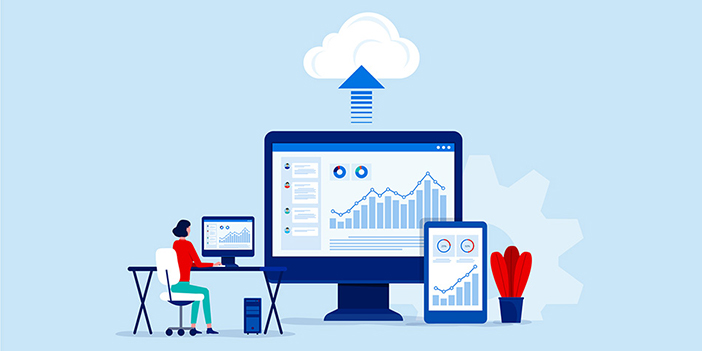
Simply put, the operations of managing litigation are growing in complexity. And while there are several factors that contribute to that, none have had more of an impact than the digital transformation of the workplace. Everything from social media to communication channels like slack, to data storage in the cloud, have all been incredible changes in how we live and work.
Companies entering into cloud-computing agreements should verify who owns their data, who can access it, and what happens to their data if the hosting company or provider ceases its operations.
Jennifer Bantelman, Zapproved
However, they’ve also immensely complicated the processes of how we go about ediscovery, specifically when it comes to preservation. Adding to that complexity is everything from new regulations to soaring data volumes, and even things as world changing as a pandemic, which forced most global work forces to go remote.
Ediscovery Challenges Facing the Modern In-House Legal Team
These challenges are all compounded by an increase in cost to manage data for litigation. At the same time concerns over keeping data volumes and costs under control are more pressing than ever. The result of this perfect storm is that management teams are trying to balance company growth which usually comes with an increase in security risk and new costs, with the need to protect the company and reduce costs. Most often this leaves in-house legal teams stuck doing a combination of the following:
- Overspending on outside counsel.
- Overinvesting in complex software.
- Holding on to a manual process.
Understanding Legal Holds in a Cloud-Based World
The benefits of a cloud-based solution are many. First let’s try and unpack what exactly the cloud is more specifically how it works with legal tech and ediscovery software. Simply put, the cloud describes a global network of computers and servers that store and process data. Data and software in the cloud are located on physical servers — at least one, but usually more — somewhere in the world. Generally, these servers are redundant and geographically dispersed so that a catastrophe in one location can be compensated for by servers in another location.
Most ediscovery services are now cloud-based, as are social media sites like Facebook, Twitter, and Instagram and applications like Google Drive, Dropbox, and Microsoft OneDrive. Many software applications are no longer available for local installation, as they have been completely replaced by cloud-based software-as-a-service (SaaS) versions.
The cloud provides numerous benefits for businesses. When properly designed, the cloud can offer an essentially infinite volume for processing and data storage. Upfront costs are lower with cloud-based storage and software. Businesses don’t have to buy expensive hardware, nor do they need dedicated physical space to operate that equipment or an IT staff to run and maintain it.
Cloud-based applications make collaboration easy, which is especially helpful for legal holds as authorized users from anywhere in the world can track and maintain holds on multiple custodians.
Addressing Concerns About Cloud-Based Legal Technology
While data security is a common concern about cloud storage, most cloud-based systems have better security measures than their on-site equivalents. Cloud providers like Amazon Web Services (AWS) have greater resources to invest in security measures and dedicated security staff. While no system is foolproof, well-chosen cloud storage and SaaS providers should provide excellent physical and logical security.
One reasonable concern about cloud computing relates to data control and ownership. Companies entering into cloud-computing agreements should verify who owns their data, who can access it, and what happens to their data if the hosting company or provider ceases its operations. This is especially important in ediscovery, when electronically stored information (ESI) must be preserved and eventually collected for litigation.
How Cloud-Based Legal Hold Software Can Help
Here are a few key ways that switching to a modern cloud-based platform from a legacy on-prem solution can help modernize and streamline the processes of an in-house legal team.
- Reducing Ediscovery Costs without Sacrificing Risk
Many on-premises legal solutions require an upfront investment on equipment that starts depreciating as soon as you turn it on. As your needs grow, you’ll start paying more for hardware and costly software upgrades and security fixes. With a cloud-based legal hold solution, you can simply pay an annual subscription for software that is always up to date in terms of functionality and risk.
- Bringing More Control In-House
Any sort of on-prem solution must be carefully maintained in case of a failure of data breach. This often requires hiring security experts, another additional cost. Cloud-based ediscovery software will let you share more information with outside counsel, without sacrificing risk or giving up control. The biggest cloud platforms, such as Amazon Web Services, Microsoft Azure, and Google Cloud provide foundational technologies for various types of business software, allowing them to benefit from their world-class standards of privacy and data security.
- Using Cloud Software with a Remote Workforce
In most cases, your end user doesn’t care about technical distinctions like on-prem versus cloud. They just want tools that make their job easier. They want the tools to be able to do their job from wherever, especially so with COVID-19 changing the landscape of global workforces and bringing about the rise in remote work. With the cloud, you can work from anywhere, with built in security and collaboration.
Cloud Technology in Action
Cloud technology isn’t just a thing of the future, it’s a tool for the present. This is true now more than ever with the rise in remote work, the increased scope of the corporate legal team, and the need to streamline the process from start to finish.

